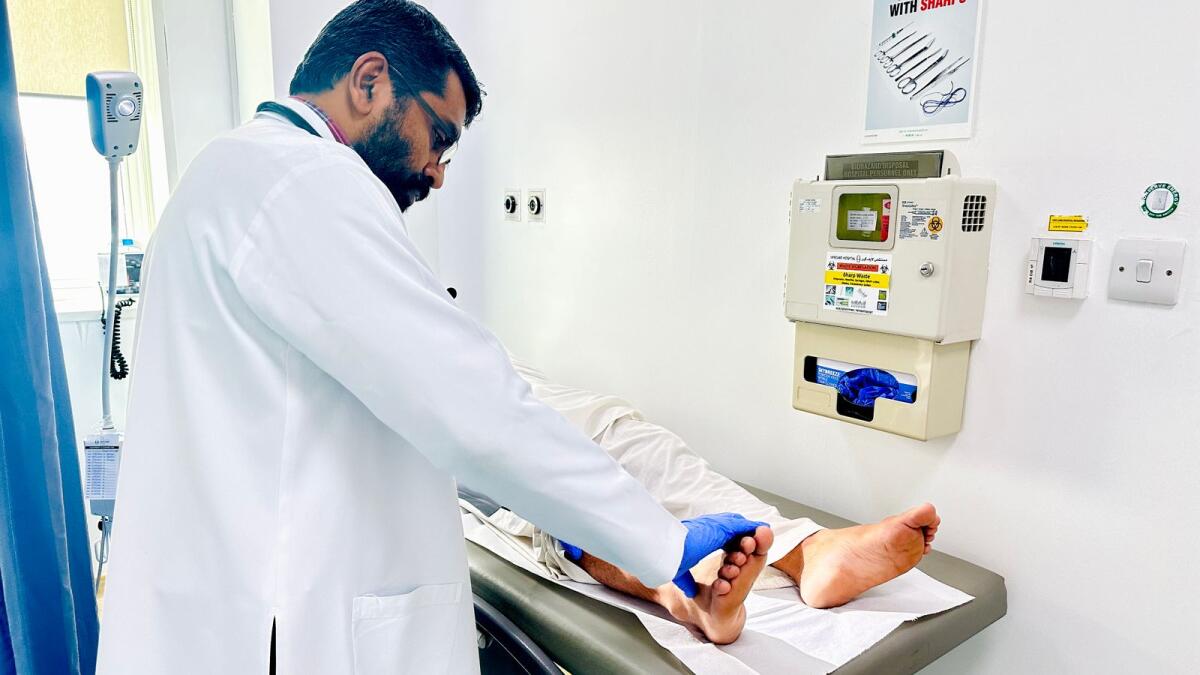Majeed Muhammad, a 42-year-old resident of Abu Dhabi, recently survived a life-threatening battle with acute meningococcemia, a severe bloodstream infection. After arriving at Lifecare Hospital, Musaffah with symptoms of high fever, dizziness, hypotension, and rapid breathing, Muhammad’s condition worsened, leading to multiple organ failure and various complications such as acute kidney failure, acute respiratory distress syndrome, abnormal blood clotting, and gangrene of the toes. Dr Baiju Faizal, consultant of internal medicine, noted that Muhammad’s condition was rare and suspected sepsis initially. However, a series of tests confirmed the presence of Neisseria meningitidis, the bacterium causing meningococcemia. Despite the complexities of the infection, Muhammad was successfully treated by a team of specialists and made a full recovery.
Meningococcal disease, first discovered in 1805, has a long history of being dreaded for its epidemic nature. In the late 19th century, serum therapy was identified as a treatment for toxin-related bacterial diseases, and this approach was eventually applied to meningococcal disease, becoming the standard treatment in the early 20th century. Nowadays, meningococcal disease is controlled through vaccinations globally, although certain regions still face endemic challenges. Muhammad’s case of acute meningococcemia demonstrated the severity of the infection, leading to complications like Disseminated Intravascular Coagulation (DIC) and necessitating immediate medical intervention. Fortunately, timely diagnosis and care enabled his recovery.
Muhammad’s recovery journey involved the administration of broad-spectrum antibiotics, hemodialysis for kidney failure, mechanical ventilation for respiratory distress, and treatments for severe DIC and gangrene of the toes. The expert medical team at Lifecare Hospital ensured that Muhammad received the necessary care and support to overcome his life-threatening condition. Following his discharge from the hospital, Muhammad expressed gratitude towards the healthcare professionals who played a pivotal role in his recovery, emphasizing the importance of seeking timely medical assistance and following up with necessary treatments and vaccinations to prevent future occurrences of meningococcemia.
For individuals looking to avoid meningococcemia, practicing healthy habits, seeking prompt medical attention, and getting vaccinated are essential steps. Close contacts of infected individuals, particularly those sharing a household or room, should receive prophylactic antibiotics to prevent the spread of the infection. High-risk groups, such as individuals with non-functioning spleens or complement deficiencies, should consider meningococcal vaccination, especially those living in crowded environments or participating in activities like pilgrimage. Booster doses may be recommended for high-risk individuals after five years to maintain protection against meningococcemia.
In conclusion, awareness, early intervention, and preventive measures are crucial in managing meningococcal disease and its potentially life-threatening complications like acute meningococcemia. Muhammad’s story serves as a testament to the resilience of the human spirit and the effectiveness of modern medical advancements in combating severe infections. By staying informed, seeking medical care promptly, and following healthcare recommendations, individuals can reduce the risk of contracting meningococcemia and other similar infections, ultimately safeguarding their health and well-being.










